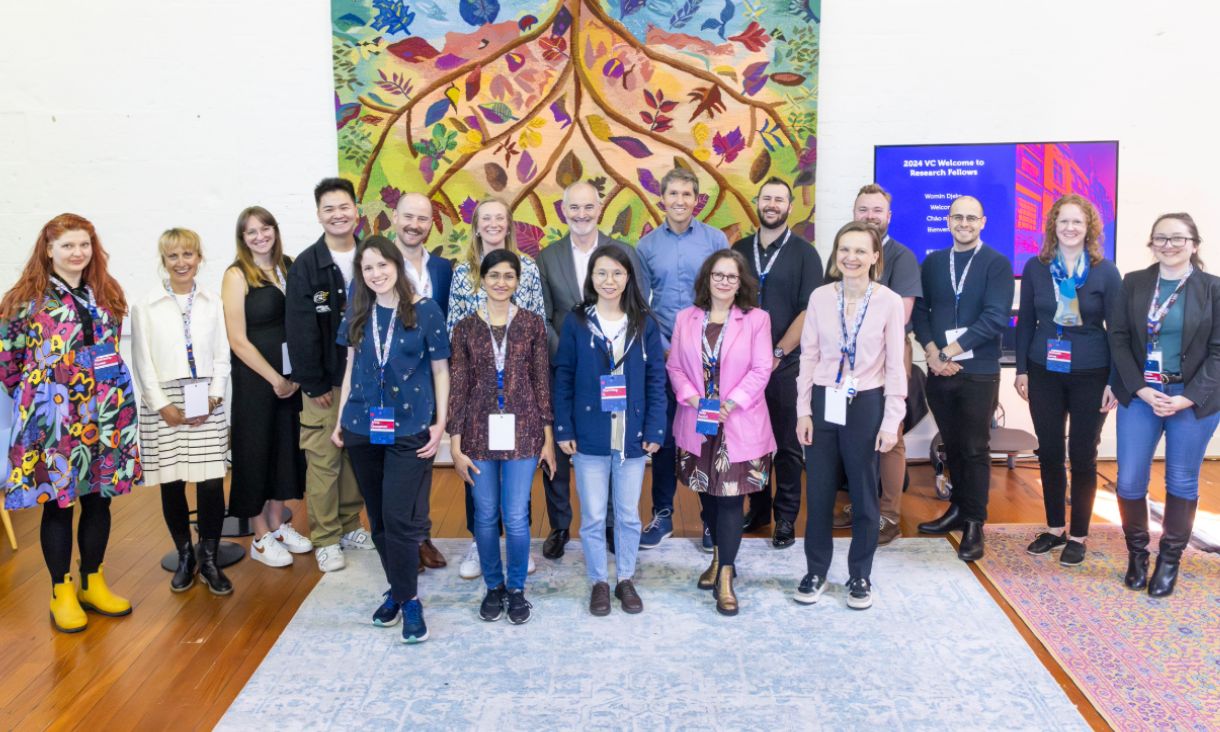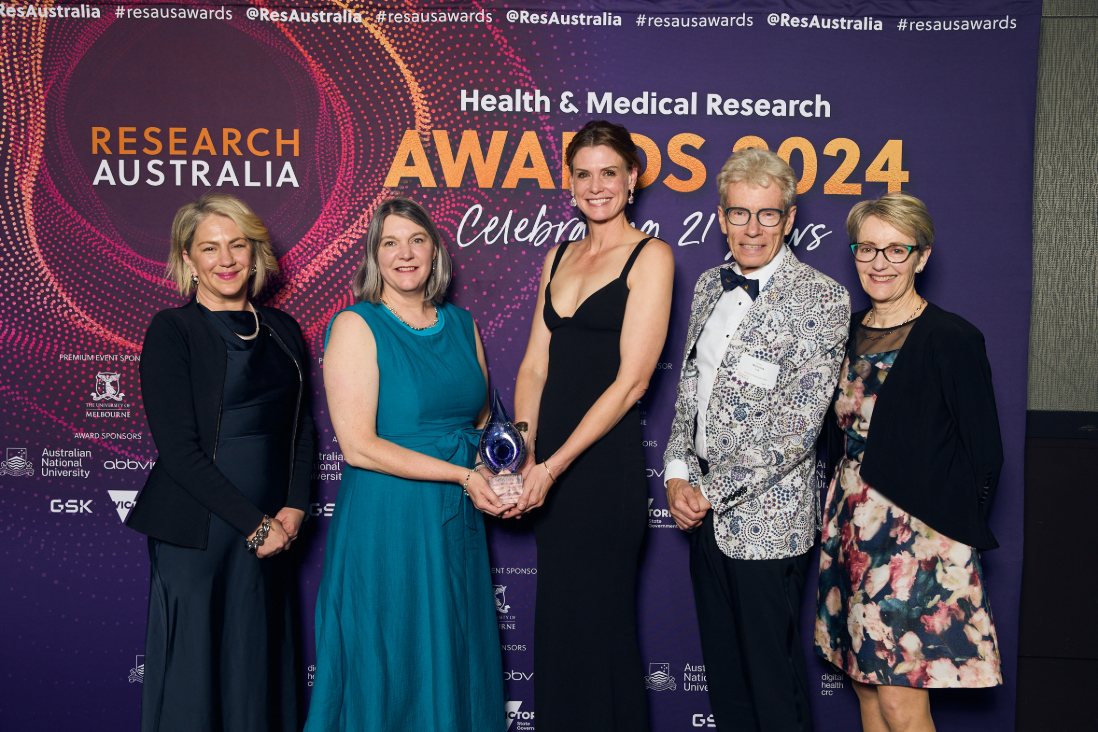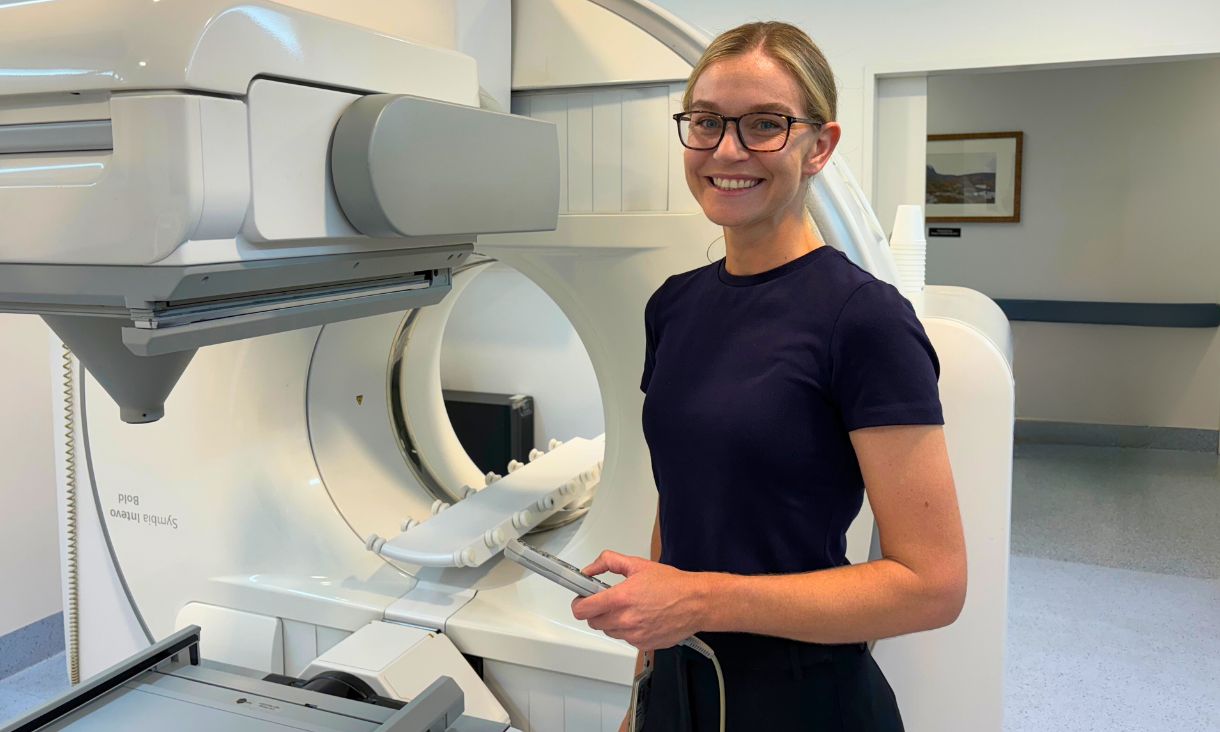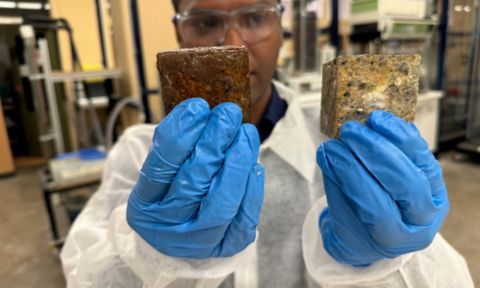
A lifeline for premature born babies: Funding announced for new stem cell research
RMIT is part a group of researchers from across the globe developing a new therapy that aims to see if stem cells can be used to regenerate the brain damage caused by premature birth. This brain damage is called ‘encephalopathy of prematurity’ (EOP).
To ‘rebuild’ the damaged areas of the brain, scientists will use human mesenchymal stem cells (H-MSC) – those taken from umbilical cord tissue and very different to human embryonic stem cells (hESC).
RMIT University is a partner on the European research project called PREMSTEM. It has received €9M in funding from the European Union’s prestigious Horizon 2020 Research and Innovation programme.
Professor Pierre Gressens, PREMSTEM Project Coordinator, said the five-year project will see a therapy ready for clinical trials to see if it will treat brain injury in premature born infants.
“We’ll be examining the best regiment, timing, dose and administration route for H-MSC as therapy for this specific type of brain injury,” Gressens said.
“We’ll also develop new, inexpensive and easy-to-use imaging tools that will give clinicians, for the first time, the ability to readily identify premature born babies needing our treatment, those that have encephalopathy of prematurity.”
Once the research is complete, Gressens said the therapy will have an even broader application.
“We anticipate that we’ll be able to extend to other types of perinatal brain injury and disorders such as paediatric multiple sclerosis,” he said.
More than 15 million babies are born preterm every year – before 37 weeks of a typical 40 week pregnancy – and are at risk of long-term disability due to brain damage.
The last weeks of pregnancy are a time of astounding growth and change for an unborn baby’s brain – often referred to as the ‘big bang’ during neonatal development.
Disturbances in the brain’s growth, such as through premature birth, can result in cerebral palsy, severely impaired cognitive functions and disorders such as attention deficit and hyperactivity disorder (ADHD) and autism spectrum disorder (ASD).
RMIT University’s Dr Bobbi Fleiss, who is working on the project, said RMIT researchers are bringing invaluable expertise in understanding how these stem cells regenerate the whole brain, and insights into how they are interacting with specific brain cells.
“We were able to bring to PREMSTEM real translational value and this group, with its mix of world class researchers, perinatal clinicians, patient charities and industry connections, has the real potential to improve how we treat these sick babies,” Fleiss, a Vice-Chancellor’s Research Fellow at RMIT, said.
PREMSTEM, which officially started in January 2020, has fifteen partners from eight countries and involves world-leading clinicians, researchers and healthcare organisations specialised in neonatology in both Europe and Australia.
The academic and industry partners are the Institut National De La Santé et de La Recherche Médicale (Inserm) (France), Inserm Transfert (France), Royal Melbourne Institute of Technology (RMIT) University (Australia), RMIT Europe (Spain), Universitair Medisch Centrum Utrecht (Netherlands), Universiteit Maastricht (Netherlands), Stichting Katholieke Universiteit (Netherlands), Universitaetsklinikum Essen (Germany), Goteborg Universitet (Sweden), Consiglio Nazionale Delle Ricerche (Italy), Universite De Geneve (Switzerland), Iconeus (France) and CHIESI Farmaceutici SPA (Italy).
Two major advocacy groups supporting premature born infants and their families are also central to the project – The European Foundation for the Care of Newborn Infants (EFCNI) in Germany as well as the Cerebral Palsy Alliance in Australia.
Project contact: Stéphanie Le Naour, stephanie.lenaour@inserm-transfert.fr
RMIT University media contact: Karen Matthews, karen.matthews@rmit.edu.au

This project has received funding from the European Union's Horizon 2020 research and innovation programme under grant agreement Number 874721.
- Research
- RMIT Europe
Related News
RMIT welcomes its newest Vice-Chancellor's Research Fellows
This year’s Vice-Chancellor Research Fellows (VCRF) in the College of Design and Social Context and STEM College are set to play a pivotal role in advancing the University’s strategic priorities, contributing to cutting-edge developments across various disciplines.
Aged care digital health tool recognised again on national stage
Australia’s first electronic screening and risk prediction tool for deterioration in aged care residents has won another national prize for its positive impact on health and safety.
RMIT responds to critical skills shortage to support early cancer diagnosis in Queensland
RMIT University will offer Queensland’s first nuclear medicine degree, addressing critical workforce shortages and shoring up cancer services across the state.
Anti-fatberg invention could help unclog city sewers
Engineers from RMIT University have invented a protective coating for concrete pipes that could help drastically reduce the formation of fatbergs in sewers.
Acknowledgement of Country
RMIT University acknowledges the people of the Woi wurrung and Boon wurrung language groups of the eastern Kulin Nation on whose unceded lands we conduct the business of the University. RMIT University respectfully acknowledges their Ancestors and Elders, past and present. RMIT also acknowledges the Traditional Custodians and their Ancestors of the lands and waters across Australia where we conduct our business - Artwork 'Sentient' by Hollie Johnson, Gunaikurnai and Monero Ngarigo.



